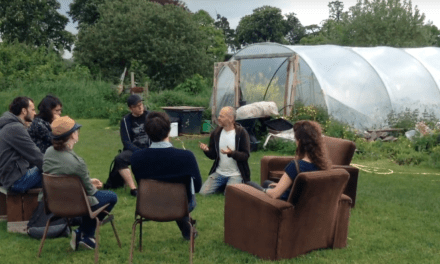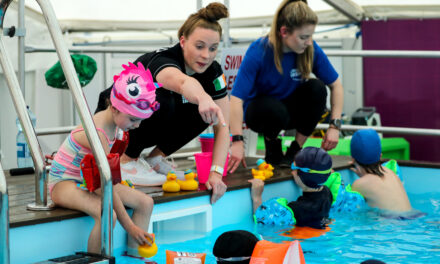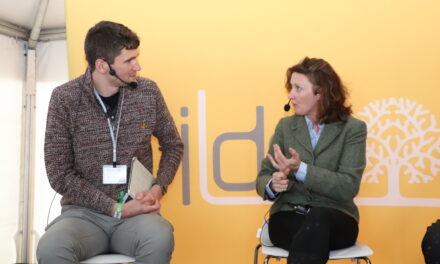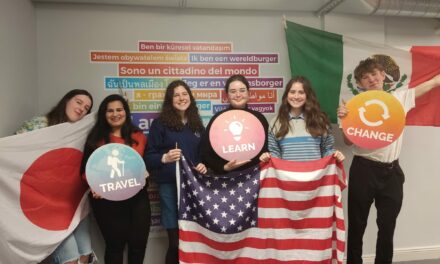EXCERPT: Even when things were difficult during the Ebola outbreak the club did not disintegrate; it hibernated.
Sustainability is key in community development. Projects that last are ones with strong local foundations. Bureh Beach Surf Club in Sierra Leone is a great example of a community-led initiative using its resources to their best advantage.
Here, a determined local effort, along with a little international support, made a big difference to a small, coastal community.

Bureh Beach. Pic by Cian Kearns.
Sierra Leone has had a torrid time. In 2014, the country was thrust into the international limelight for all the wrong reasons. Images of death and disease swamped the global media. Yet Sierra Leone is a land full of potential. And with its golden, palm-fringed beaches and pristine wildlife sanctuaries, tourism is certain to play a key role in its future.
40 km south of the capital, Freetown, a long crescent beach hugs the coast, framed by lush jungle spilling off the hills above. A river flows into the bay, sculpting the sandbar that produces one of the best waves in Sierra Leone: a long, mellow, left hand point-break. This is Bureh Beach.
Sitting outside the surf club, with waves lapping up almost to his feet, Galway man Shane O’Connor explains his role in founding the club. “Basically I wanted to help my friends and make sure they got the benefits of the natural resources: the waves here in Bureh.” He focused on fostering ownership amongst the locals. Rather than manage, he prompted and advised. Gradually, he has stepped back. Now, more often than not, he is just another punter renting a board when the waves are good.
Charles, one of the young surfing talents of Sierra Leone, says: “The community thinks that surfing is the best thing in Bureh.” He explains that along with being enormous fun itself, surf lessons provide a source of much needed income for local surfers. All the club members have a role to play. Some give surf lessons to tourists, mostly expats working at NGOs, who frequent Bureh Beach on the weekends. Others cook food for visitors or manage the rental equipment.
As a community-based organisation, all revenue from lessons, gear rentals and selling food is reinvested locally, with 25% set aside for community-based projects. The surf club members decide what they want to do with these funds including supporting new businesses and promoting events such as the country’s first surfing competition  .
.
The club has been a great success. Even when things were difficult during the Ebola outbreak the club did not disintegrate; it hibernated. When the epidemic ended, the skills, equipment and experience remained. Bureh Beach quickly bounced back.
Today tourism to the beach has increased. Small restaurants and guest houses have sprung up to accommodate new visitors. These provide employment in an area people previously left to find work. Jabez, the club manager, summed up the community’s feelings: “Now everybody’s in love with surfing, everybody wants to get in the water!”
IN SOLIDARITY: GO SURF AND SEE FOR YOURSELF!

Charles goes for a surf at Bureh Beach. Pic by Cian Kearns.
Cian Kearns travelled with support from the Simon Cumbers Media Fund, after becoming fascinated with Sierra Leone, as he explains here:
Sierra Leone is a country that defies your expectations. Perched on the coast of West Africa, it’s a place on the very edge of global consciousness, where the romantic dream of Africa meets the hot, sweaty reality  .
.
On Freetown’s streets a thousand dramas are played out daily. Along palm-fringed shores, white sand beaches stretch out as if plucked from a dreamer’s imagination and in the interior, red, earthen roads pierce dense jungles, revealing their mysteries to the intrepid. Sierra Leone is a place of adventure.
My urge to visit the country arrived subtly but grew irresistibly, nourished by whispered rumours of an unmatched vibrancy there. My ears pricked whenever I heard Sierra Leone mentioned. Then, scanning the internet, I stumbled upon a peculiar fact: Sierra Leone had just opened its first ever surf club – and the founder was a Galwayman! Intrigued, I made my decision. I sent an email to the unlikely founder, booked my flights and packed my bags.
Traveling in Sierra Leone is a challenging but rewarding experience. Tourism, although growing, is still rare. It’s a tough country to travel in. It’s safe – I never felt threatened in any way – but it’s a country unused to visitors. Sierra Leone is a country that dances to its own rhythms. Let its pulses draw you in and you’ll find yourself coming home dancing.
MORE INFORMATION
Generally, information on Sierra Leone can be difficult to find online. However, just because there’s no website doesn’t mean that there isn’t a thriving business – they’re just offline.
Bureh Beach Surf Club is on Facebook: https://bit.ly/BurehFB
To contact the Surf Club directly, including to make bookings, call/sms/ whatsapp on: 00232-88-644273 or 00232-88- 808654.
A phone number is by far and away the best method of getting in touch with people in Sierra Leone.
UPDATE – Watch TRT World’s 2018 video report from Bureh Beach here:




